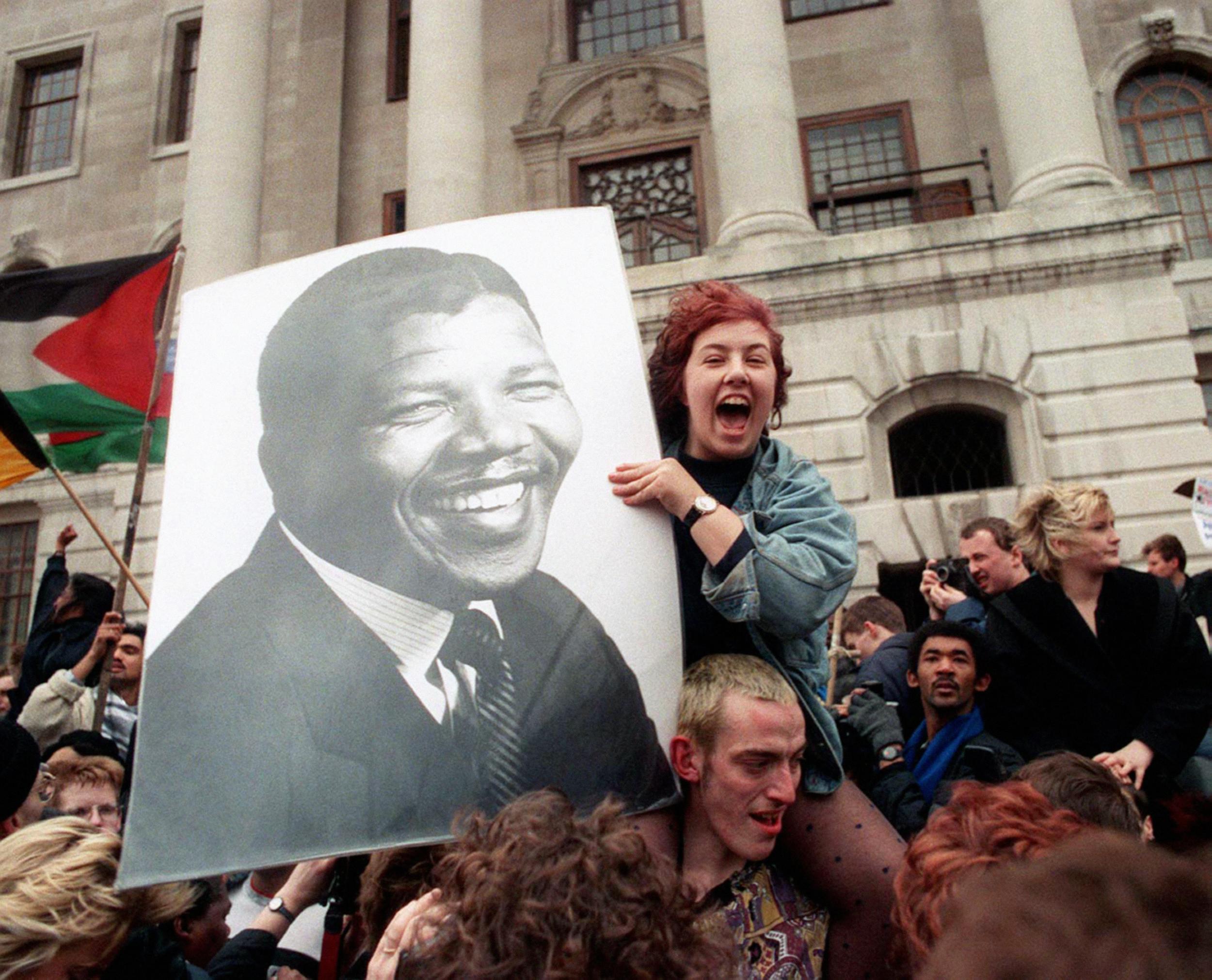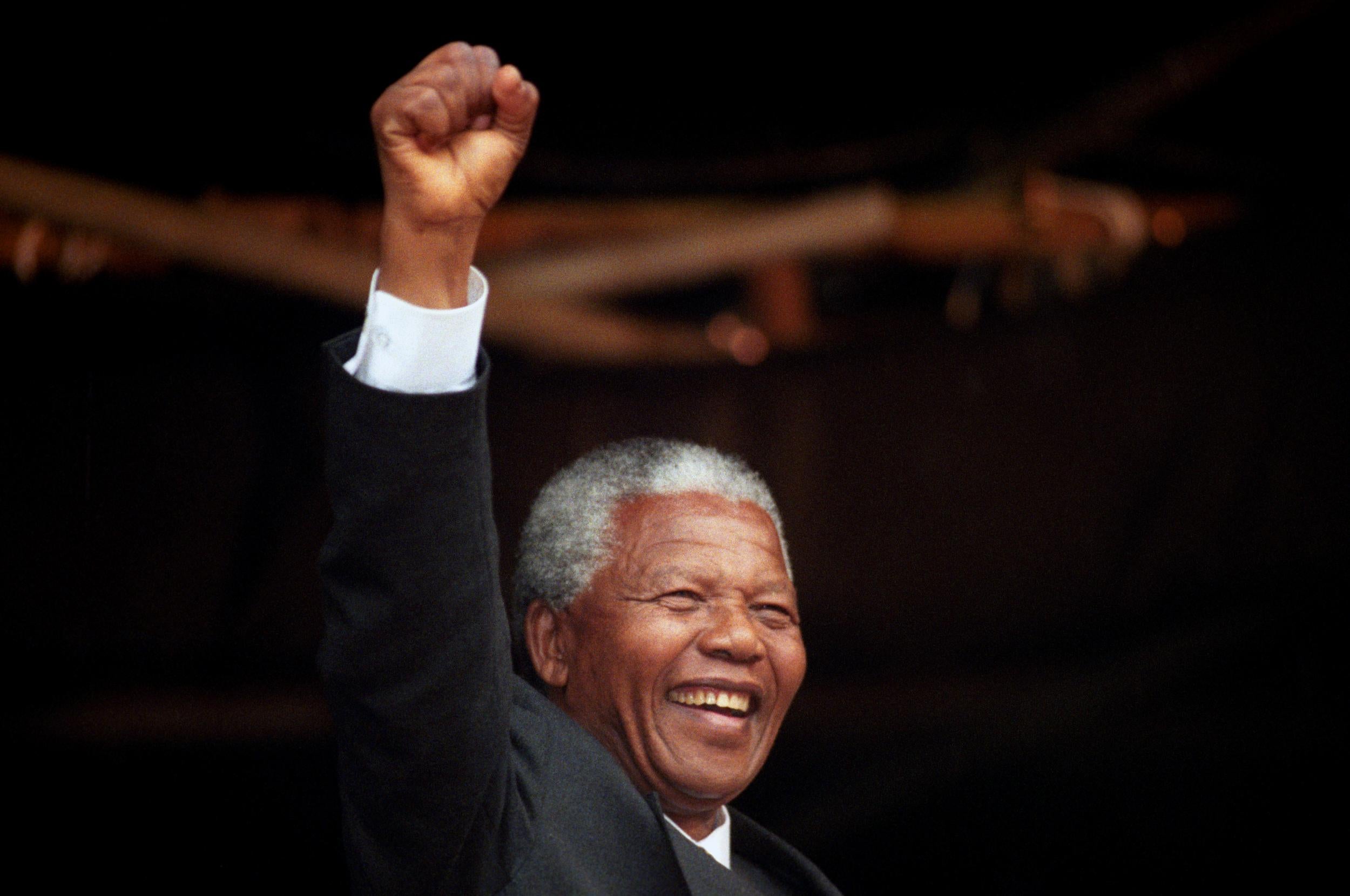Margaret Thatcher was ‘disappointed’ by Nelson Mandela and thought he had ‘a closed mind’, cabinet papers reveal
Britain’s ambassador secretly described anti-apartheid hero as ‘not as intelligent as Robert Mugabe, but a great deal nicer’
Your support helps us to tell the story
From reproductive rights to climate change to Big Tech, The Independent is on the ground when the story is developing. Whether it's investigating the financials of Elon Musk's pro-Trump PAC or producing our latest documentary, 'The A Word', which shines a light on the American women fighting for reproductive rights, we know how important it is to parse out the facts from the messaging.
At such a critical moment in US history, we need reporters on the ground. Your donation allows us to keep sending journalists to speak to both sides of the story.
The Independent is trusted by Americans across the entire political spectrum. And unlike many other quality news outlets, we choose not to lock Americans out of our reporting and analysis with paywalls. We believe quality journalism should be available to everyone, paid for by those who can afford it.
Your support makes all the difference.Margaret Thatcher secretly confided that she was “a bit disappointed” by Nelson Mandela and thought he “seemed to have rather a closed mind”, newly released cabinet papers reveal.
Britain’s ambassador to South Africa, meanwhile, described the man who would become one of the greatest statesmen of the 20th century as “Not as intelligent as [Robert] Mugabe, but a great deal nicer.”
Mrs Thatcher’s comments came after she took a phone call from Mr Mandela on 17 June 1990, four months after his release from prison and while he was negotiating with South African president F W de Klerk to end apartheid.
In a private note of the phone call, Charles Powell, Mrs Thatcher’s private secretary for foreign affairs, wrote: “The prime minister commented to me afterwards that she was a bit disappointed with Mandela, who seemed to have rather a closed mind.”
“For his part,” Mr Powell observed, “he will now have experienced first-hand the prime minister’s strong views on the armed struggle and on sanctions.”
In his memo to the foreign office, Mr Powell, whose brother Jonathan would become Tony Blair’s chief of staff, added: “We are not proposing to tell the press about this discussion.”
Mr Powell’s four-page note of their conversation makes clear that Mr Mandela was worried the European Community, the forerunner to the EU, was about to ease sanctions on apartheid South Africa, at Mrs Thatcher’s request.
Attempting to buy time on the issue, Mr Mandela, then the deputy president of the African National Congress, “was sure she could play an important role in facilitating the process of negotiations in South Africa” but believed “the action which she took over sanctions would have a bearing on her ability to do so.”
The note added that while Mr Mandela would respect Mrs Thatcher’s position with regard to Britain, “he would ask her was not to press other governments to lift sanctions, before he had been able to discuss the situation more fully with her.”
Mr Powell’s wrote: “The prime minister said President de Klerk had gone a long way to meet the ANC, and it was vital he should receive some support from the international community.
“We do indeed believe that the right course for the [European] Community is to start the process of easing sanctions, as a clear signal of support for de Klerk’s efforts.”
The note, which is now in the National Archives, also seems to suggest that Mr Mandela may have been subjected to a lecture on his refusal to abandon the ANC’s commitment to the “armed struggle” against apartheid.
“The prime minister said Mr Mandela must understand how concerned we were by the ANC’s failure to suspend violence,” said Mr Powell.
“We had experience of armed struggle in that we ourselves suffered at the hands of the IRA. We had very much hoped the ANC would agree to suspend it by now.”
Mr Mandela, it seemed, did try to explain his point of view to Mrs Thatcher.
Mr Powell’s added: “Mr Mandela said … The problem was that the South African government seemed unable to restrain the police.
“He would be able to give the prime minister details of police activities against the ANC, the action being taken by vigilante groups, and the threats of the right wing to destroy the ANC and hang Nelson Mandela.
“This was not an easy background against which he could persuade the ANC to end the armed struggle.”
In a later briefing note, Sir Robin Renwick, UK ambassador to South Africa, told Mr Powell that Mrs Thatcher should make it clear to Mr Mandela that he was not being asked to “disarm his people”, only to “suspend the ‘armed struggle’ while negotiations take place”.
In diplomatic cables written shortly after Mrs Thatcher’s telephone call, Sir Robin described his own early, slightly mixed impressions of Mandela.
“All those who visited Mandela in prison were struck by his courage and dignity. My own experience is the same. Mandela has a natural dignity and authority.
“He is not as intelligent as [Zimbabwe dictator] Mugabe, but a great deal nicer.”
His long decades of imprisonment, Sir Robin added, had left Mr Mandela stuck in the past when it came to economics.

Offering a description of someone unlikely to share MrsThatcher’s economic outlook, Sir Robin wrote: “In so far as Mandela understands anything about economics, his ideas were formed in the 1950s. He is an old-fashioned socialist, but has never been a communist.
“But the ANC’s document on The Economy Beyond Apartheid is full of the kind of ideas about the role of the state that have been discredited and proved disastrous elsewhere.”
And, Sir Robin warned: “He cultivates an almost slavish loyalty to the organisation [the ANC] to which he has devoted his entire political life, and believes all the information they feed him.”
Sir Robin noted how Mandela often spoke of de Klerk as a man of integrity with whom he could negotiate an end to apartheid, but the ambassador added: “In the same breath he talks about the continuance of the ‘armed struggle’, even though effectively it has been suspended: there have been no bomb attacks in the white areas.”
Despite the anxieties outlined in his cable, Sir Robin concluded with a fulsome, if mildly barbed tribute: “The man himself is much more impressive than his public utterances.”
“Mandela’s dignity,” Sir Robin explained, “Gives him a real charisma, felt even by his opponents, by virtually all black South Africans, and by many of the whites who are most strongly opposed to him.”
And when finally Mrs Thatcher and Mr Mandela met face-to-face in Downing Street in July 1990, Mr Powell’s account would suggest they got on rather well.
In his note of the three-hour meeting, at which the two leaders were accompanied by Sir Robin and Thabo Mbeki, Mr Mandela’s eventual successor as South African president, Mr Powell wrote: “It was a successful meeting with an excellent atmosphere.
“Meeting him in person, I think she was impressed by his courtliness and obvious sincerity.
“The prime minister said there was absolutely no difference between her and Mandela that apartheid must go. It was wrong, immoral and contrary to the dignity of man.
“The prime minister concluded by saying South Africa was very fortunate to have President de Klerk and Mr Mandela at this juncture.”
Mr Powell’s note reveals that even with Margaret Thatcher in the room, “His [Mandela’s] initial comments lasted over 50 minutes uninterrupted: possibly a record.”
The same disagreements existed, but Mr Powell recorded: “Generally, he [Mandela] expressed his views on the main issues in conciliatory terms, implying the commitment to armed struggle could be given up quite soon, that lifting of sanctions could follow agreement on constitutional principles.”
Mrs Thatcher’s views, Powell seems to suggest, remained rather rigid: “On sanctions, she could never accept the logic that we should be asked to relieve poverty and starvation where they existed in Africa, while at the same time being pressed to cause poverty, starvation and unemployment in South Africa.”
Mr Powell also gave the impression that Mr Mandela’s economic views weren’t quite as old-fashioned socialist as Sir Robin’s cable had suggested.

Mr Powell wrote: “He wanted to stress that the ANC had not decided on nationalisation. They hoped viable alternatives could be found. They had seen the mistakes made by others in Africa, and it would be foolhardy to ignore them.
“He might also quote the example of Mr Gorbachev, who had the courage to say the system to which he devoted his life was seriously deficient.
“Mandela continued that the ANC recognised the importance of successful economic policies and were in touch with South African businessmen.”
Mandela, however, did point out that, according to Powell, that “virtually all the resources of South Africa were owned by a tiny minority of the white minority. The great mass of black people were experiencing poverty, hunger, illiteracy and unemployment.
He added: “Unless this inequitable distribution could be rectified, it would not be possible to get democracy to function.”
In April 1994, Nelson Mandela was elected as South Africa’s first black president. By the time he died aged 95 in December 2013 he was almost universally regarded as having been one of the world’s greatest political leaders.
Subscribe to Independent Premium to bookmark this article
Want to bookmark your favourite articles and stories to read or reference later? Start your Independent Premium subscription today.

Join our commenting forum
Join thought-provoking conversations, follow other Independent readers and see their replies
Comments